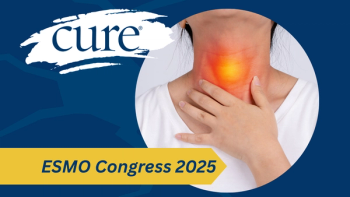
- Summer 2019
- Volume 1
- Issue 1
Reducing the Risk for Esophageal Cancer
For patients with Barrett’s esophagus, surveillance, drugs and diet can help prevent the development of cancer.
If you have gastroesophageal reflux disease (GERD), you may have been warned to follow doctor’s orders to avoid developing Barrett’s esophagus (BE), which can, in turn, lead to cancer. But just what is this condition?
In people with BE, the tissue that lines the esophagus is replaced by tissue that is similar to the lining of the intestines, a process called intestinal metaplasia. People with BE are at increased risk of developing esophageal adenocarcinoma. In fact, the rates of this cancer are increasing rapidly due not only to reflux but also to obesity, particularly in black, Hispanic and Asian/Pacific Islander patients.
“Thankfully, less than 1% of these patients (with BE) go on to develop invasive esophageal adenocarcinoma,” says Dr. Ronan J. Kelly, director of the Charles A. Sammons Cancer Center at Baylor Scott & White Health in Dallas and an adjunct associate professor of oncology at the Sidney Kimmel Comprehensive Cancer Center at Johns Hopkins Medicine in Baltimore. “However, we do not really know yet how to predict who is likely to progress to this more aggressive cancer versus who won’t.”
BE is estimated to occur in 1.6% to 6.8% of the population, and men are twice as likely to develop the condition as women. People with BE often have a history of GERD, but some patients may have no symptoms yet receive the diagnosis.
Similar to esophageal cancer, BE is diagnosed with a procedure called an endoscopy, during which a tissue sample, or biopsy, is taken.
According to Kelly, anyone who receives the diagnosis is placed on a surveillance program to undergo endoscopy every couple of years, with biopsies taken to determine if the cells in the esophagus are changing. “When diagnosed and treated, the vast majority of patients with BE do not develop esophageal cancer,” Kelly says. “There are great treatments available.”
Patients with BE and GERD can be treated with proton-pump inhibitors, a type of medicine that suppresses acids from the stomach. In addition, procedures called endoscopic ablative therapies — photodynamic therapy or radiofrequency ablation — can be used to destroy the abnormal cells in the esophagus.
Finally, patients with BE are also often advised to make certain changes to their diet to prevent or relieve symptoms of GERD. On the horizon may be the use of low-dose aspirin along with a high-dose proton pump inhibitor. A phase 3 clinical trial found last year that taking this combination for seven years may moderately reduce the chance that someone with BE will develop high-grade dysplasia or esophageal cancer, possibly delaying death from any cause.
Articles in this issue
over 6 years ago
Taking on Pancreatic Cancerover 6 years ago
Agents of Choiceover 6 years ago
Surprised by Side Effectsover 6 years ago
Our Sisters' Keepersover 6 years ago
A Look Inside a Supportive Care Clinicover 6 years ago
Thinking Outside the Box With Esophageal Cancer Treatmentover 6 years ago
Dream Sequenceover 6 years ago
Remaining Ever Vigilant in Cancer Screening



